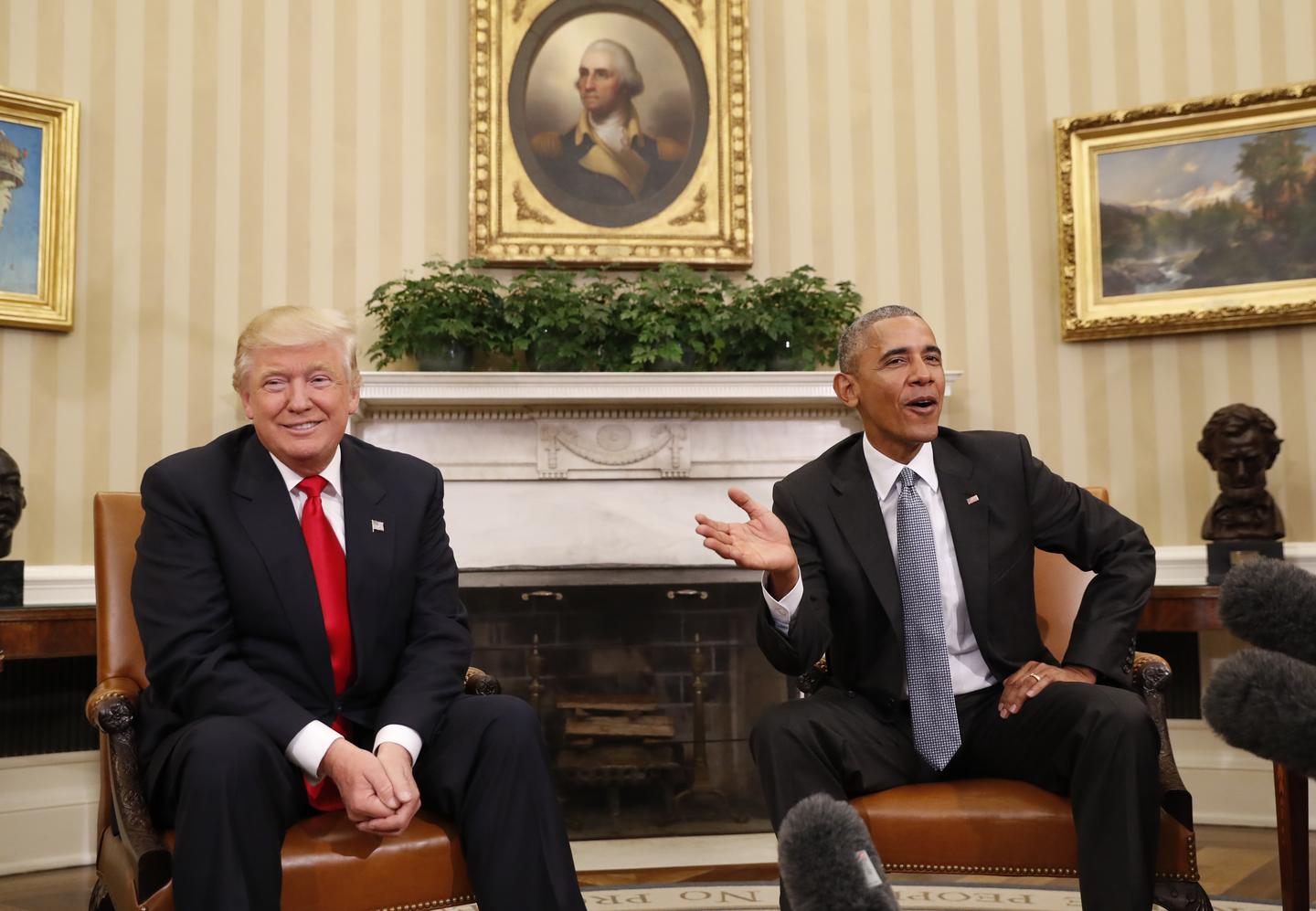
Donald Trump can phone a friend when he has a question about governing. And most improbably, that valued resource turns out to be President Obama, who took Trump’s call Saturday – and not for the first time.
A 45-minute “consultation” is how White House Press Secretary Josh Earnest described their weekend conversation, one of “a handful” of telephone exchanges the two men have shared since their first face-to-face meeting in the Oval Office, which lasted 90 minutes earlier this month.
Earnest said he was intentionally vague in responding to questions about the number of such calls and topics of conversation, which he refused to describe, to give the president and president-elect the ability to confer in private. He also said he didn’t see the White House announcing future calls between the two men.
Trump’s advisers, focused on efforts to select a cabinet, assemble a White House staff and craft a 100-day agenda with Congress for early 2017, are suddenly touting the president-elect’s pleasure in conferring with the same man he denigrated for years as a potentially illegitimate and “failed” American president.
What do the phone calls signal? The private view inside the White House is that Trump needs all the help he can get while rocketing from private businessman to leader of the free world. In interviews and exchanges with reporters, Obama has diplomatically suggested that Trump’s learning curve is steep, but he has commended him as practical and not ideological.
To that end, the president has publicly pledged to share his insights, hoping he can influence his malleable successor during a transition to governing. Obama told The New Yorker that he believed he’d accomplished 70 to 75 percent of what he set out to do as president during two terms, and he predicted the Trump administration may “roll back” just 15 to 20 percent of those strides.
“There’s still a lot of stuff that sticks,” Obama said.
Among the policies and practices the president has suggested may prove challenging to erase: the Iran nuclear deal; counter-terrorism strategies; provisions of the Affordable Care Act Trump has publicly supported; initiatives with Cuba that American travelers, workers and businesses applaud in the wake of normalized relations; and the widely shared view that infrastructure investments would and should create valuable jobs.
But Trump’s eagerness to let it be known that he confers with Obama, as if the president is another in a long list of VIPs at his disposal, has left some in the West Wing wary. Trump has obviously been wowed by the range and stature of those willing to meet with him during his transition meetings at Trump Tower and at his golf resort in New Jersey.
Trump Campaign Manager Kellyanne Conway advertised her boss’s outreach to Obama, describing it as evidence of smart leadership.
“Leaders listen,” she said Sunday during an interview on NBC’s “Meet the Press.” “They learn. They take the counsel of many people.”
She said Trump and Obama “have been talking regularly on any number of issues. They talked just yesterday.”
Conway declined to describe the topics discussed but said Trump “very much enjoys speaking with President Obama, talking about the serious issues that face this country and the world. They get along nicely. They disagree on many things. That’s not going to change. But there is a respect there.”
Publicly, Obama’s spokesman has said the president’s assistance to the incoming president is the responsible thing to do in a dangerous world, no matter how intensely Obama rejected Trump’s policies and rhetoric before Election Day.
But Earnest was careful not to describe the president’s reactions to private conversations with his GOP successor. However, Obama has not revised his views, expressed during the campaign, that Hillary Clinton would be a better president and that Trump is temperamentally unfit to be commander-in-chief, his spokesman said.
“The president’s mind hasn’t changed, but his responsibilities have, because an election has occurred and the American people have decided that President-elect Trump should succeed President Obama,” Earnest continued.
“The president’s institutional responsibilities to ensure a smooth and effective transition supersede any specific, political preference that he has,” he added, “even on something as significant as the presidency of the United States.”
Alexis Simendinger covers the White House for RealClearPolitics. She can be reached at asimendinger@realclearpolitics.com. Follow her on Twitter @ASimendinger.
END

Be the first to comment